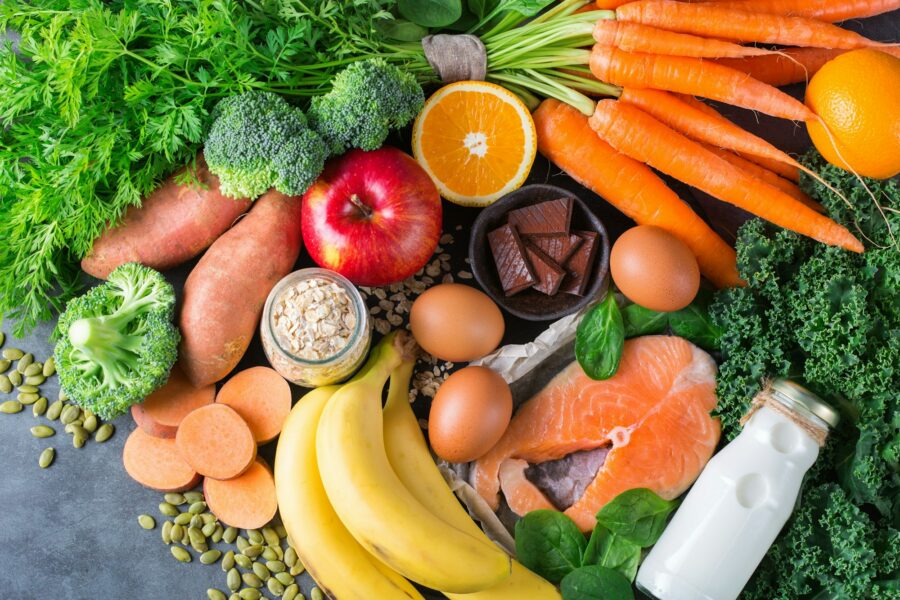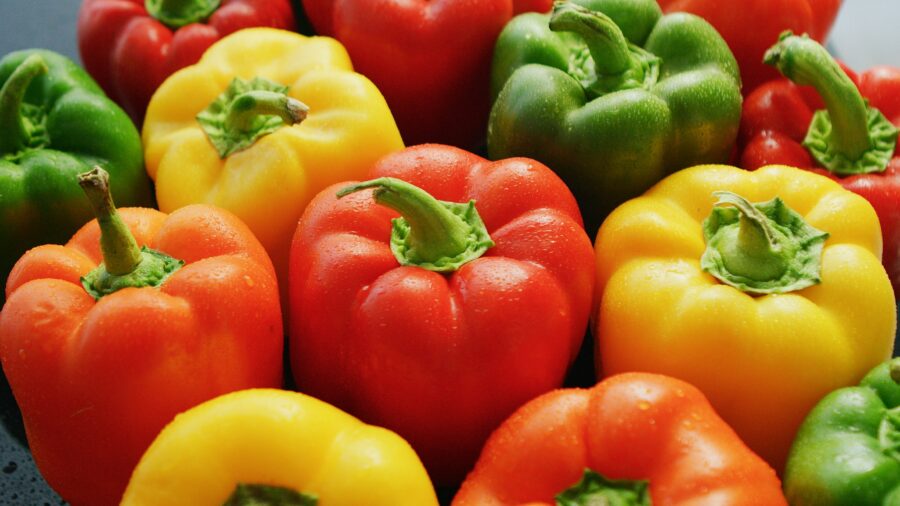Eating Healthy Sweet 16:
Can An 8-Ounce Warm Drink Aid Your Digestion?
ARTICLE IN A NUTSHELL
1. Ayurveda says drinking water during meals affects digestion, but modern research is inconclusive.
2. Learn about your digestive system to make informed choices and empower your health.
3. Sip warm beverages before/after meals and opt for hydrating foods for better health.
"Perhaps the key isn't abstaining from drinking water entirely during meals, but rather limiting it to a warm beverage of no more than 8 ounces. "
INTRO
Water, the essence of life, raises questions about its influence on digestion when consumed with meals. The temperature and volume of the beverage, mainly if it’s warm and 8 ounces or less, also play a role. However, conflicting information exists on this topic. Can An 8 Ounce Warm Drink Aid Your Digestion?
According to Eastern culture, like Ayurveda, which originated in India over 3,000 years ago, ingesting fluids with meals dilutes stomach acid, disrupting food breakdown for optimal nutrient absorption. Excessive liquids during meals may cause bloating, indigestion, and nutrient malabsorption. Japan and China also avoid drinking water with meals, supporting the idea that it hinders digestion and may lead to digestive disorders. (1)
Modern studies present a contrasting view; the Mayo Clinic Health Library suggests that drinking water during or after a meal aids in breaking down and processing food (digestion) more effectively. (2)
However, given these opposing viewpoints, the question persists: “Does drinking water with meals dilute the stomach acid necessary for healthy digestion?” And how does it impact individuals with gastrointestinal disorders like GERD and acid reflux? Let’s continue reading to discover the answers and more.
Get Your FREE eBook!
Do You Eat Healthy? Sign up to get our FREE eBook & find out:
Energetic Health Chapter 5: The Art of Eating Healthy
Includes SIXTEEN ways to help you eat your way to Health & Freedom!

DIGESTION SIMPLIFIED
The digestion process is essential because your body needs nutrients from food and drink to work correctly. One of the main functions of the gastrointestinal system, which begins at the mouth and extends to the anus, is to break down, absorb and eliminate waste. However, to understand why drinking water with your meal may or may not inhibit digestion, it is relevant to understand the basic function of how our body breaks down the foods we eat. (3)
Technically, the process of digestion starts in the brain. The actual sight and smell of food triggers our salivary glands to begin producing salivary amylase, an enzyme that breaks down food for continued digestion. The physical and chemical digestion process continues in the mouth when you start to chew your food.
Chewing your food stimulates other digestive system components and signals it to get ready to go to work. In the order they are connected, the organs that make up the gastrointestinal (GI) tract include your mouth, esophagus, stomach, small intestine, large intestine, and anus. Additionally, the biliary system, which consists of the liver, gallbladder, pancreas, and bile ducts, produces digestive enzymes and hormones to break down further proteins, fats, and carbohydrates that assist in absorbing nutrients and processing waste.
"What made EHI a special experience for me was the encouragement to apply what we are learning to our individual lives, creating a sense of passion and knowing for what we are learning."
WHAT IS HYDROCHLORIC ACID
In your stomach, there’s stomach acid, also known as gastric acid or hydrochloric acid. Some think it’s a cause of digestion problems and might use medicines like antacids or Proton Pump Inhibitors to regulate it. Yet, these treatments could create more issues.
Excessive stomach acid isn’t the main cause of indigestion; insufficient stomach acid is often the issue. The stomach prefers slight acidity (pH 1-2) for food breakdown, enzyme production, and nutrient absorption. If acid becomes too alkaline, slow digestion and fermentation can lead to gas, indigestion, and bacterial overgrowth. (5)
Experts advise against drinking water while eating as it reduces digestive enzymes, potentially causing acid reflux, heartburn, GERD, and Leaky Gut Syndrome over time. (6) (7)
Undigested food in stools may indicate enzyme problems. Bitter foods like arugula can aid digestion. Stomach acid’s key roles include protein breakdown, aiding emptying, countering harmful food elements, nutrient absorption, initiating digestion, and preventing reflux. (8) (9)

"Potent & Powerful."
Get the nutrition boosters the best natural docs use!
CHOOSING WATER WISELY FOR DIGESTION
Our research uncovers that digestion involves complex chemical processes. With a neutral pH of 7, water takes part in these processes. After a big meal, drinking water while eating or shortly after can affect how your body’s natural enzymes work to break down food for best absorption. It’s not necessarily about avoiding water altogether during meals but rather about limiting it to a small, warm drink of up to 8 ounces.
The Federal Association of German Nutritional Physicians discovered that drinking a lot of water during a meal can weaken stomach acid, causing the stomach to swell and pressurize the lower esophageal sphincter. They suggest sipping a bit of water to help the food go down and saving larger drinks between meals to stay hydrated and healthy. (10)
Drinking lukewarm water, not cold, 30 minutes before eating or an hour after can bring various health benefits. These include reducing stress, improving blood circulation, and aiding digestion. (11) (12) (13)
When studying Eastern cultures’ eating habits, we find that including water through hydrating meals is healthy. For example, in Japan, starting with a warm, nutrient-rich soup like Miso soup is supported by research. A small cup of warm tea usually follows after finishing the meal. (14)
While it’s hard to skip water between bites, here are ways to handle it:
1. Choose less salty meals, as salt can make you thirsty.
2. Chew your food well; proper chewing eases digestion and reduces the urge to drink water.
3. Drink water 30 minutes before eating; it’s an effective way to stay hydrated and might reduce calorie intake.
4. Avoid eating hastily; quick snacking can make you thirsty, leading to the urge to wash down food with water.
Confused? Don't Be.
Get your health questions answered
by experts who really care!
FINAL THOUGHTS
It’s logical that drinking too much water with a meal could affect the balance of stomach acid needed for digestion. Can An 8-Ounce Warm Drink Aid Your Digestion? While modern science explains things logically, it doesn’t always match the traditional practices followed since ancient times. Drinking water during a meal, including an 8-ounce warm drink, dilutes your saliva and impacts the necessary stomach acidity and digestive juices. This could weaken the signals for breaking down food, leading to issues like bloating and prolonged fermentation. Going back to moderation, keeping it warm and limiting it to 8 ounces or less might work best. Watch out for overeating, and consider sipping water instead of gulping. Ultimately, trust your body’s cues.
ABOUT THE AUTHOR
M. Moriah Mor, a Certified Holistic Nutritionist, is the owner of GreenSilk.com. The company is committed to helping individuals live a healthier lifestyle through education, nutrition, the research of life science, and the development of Professional High-Grade Premium health products.
Recognized for her outstanding dedication and contributions to the health and wellness industry for more than 18 years, Moriah is a graduate of the Energetic Health Institute and the University of Southern California. Her interest is focused on researching the latest scientific breakthroughs in the holistic health field. She is currently working toward her Doctorate in Natural Medicine.
More Articles We Think You'll Love
ARTICLE CITATIONS
- https://www.avnarogya.in/blog/panchakarma/the-correct-way-of-drinking-water-as-per-ayurveda
- https://www.mayoclinic.org/healthy-lifestyle/nutrition-and-healthy-eating/expert-answers/digestion/faq-20058348#:~:text=There’s%20no%20concern%20that%20water,is%20vital%20for%20good%20health.
- https://www.ncbi.nlm.nih.gov/books/NBK279304/
- https://www.ncbi.nlm.nih.gov/pmc/articles/PMC4991651/
- https://integrativepro.com/blogs/articles/the-role-of-hydrochloric-acid-hcl-in-aiding-digestion
- https://www.theguthealthdoctor.com/drinking-water-with-meals-yay-or-nay#:~:text=Drinking%20water%20with%20meals%20MAY,add%20volume%20to%20your%20stomach.
- https://www.webmd.com/heartburn-gerd/what-is-water-brash
- https://www.ncbi.nlm.nih.gov/books/NBK535425/
- https://karger.com/dig/article/77/3-4/184/105156/Do-We-Need-Gastric-Acid
- https://www.scmp.com/lifestyle/health-wellness/article/3185263/should-you-drink-during-meal-experts-say-its-ok-stick-one
- https://www.scmp.com/lifestyle/food-drink/article/2170974/would-you-drink-hot-water-scorching-summers-day-many?module=inline&pgtype=article
- http://www.fastmedcare.com/the-benefits-of-drinking-hot-water/
- https://www.medicalnewstoday.com/articles/319673
- https://www.ncbi.nlm.nih.gov/pmc/articles/PMC5852749/#B44-nutrients-10-00173






DISCLAIMER & COMPLIANCE
***Please Be Aware That At No Time Will EHI Offer Advice, Guidance, Or Direction With Respect To Whether Or Not An Individual Should Or Should Not Receive COVID Gene Modification Shots In Clinical Trial According To The National Institutes Of Health (NIH). We Encourage All People To Review Available Safety & Efficacy Data, Published By The CDC Through The Vaccine Adverse Events Reporting System (VAERS) And The CDC’s COVID Data Tracker, With Their Trusted Healthcare Team And Make The Decision That Is Right For Them. We Support Every Individual’s Rights As Patients To Agree To Or Decline Any Medical Procedure As Stated In The American Medical Association’s Code Of Medical Ethics 1.1.3(d).***
***In A Transparent Effort To Be In Full Compliance With The US Food and Drug Administration (FDA) and Federal Trade Commission (FTC) Regarding Prevention, Treatment, & Deceptive Practices (15 U.S. Code § 57b & Section 19 of the FTC Act), We Are Required To Notify You That The Information Presented In This Article Is A Collection Of Peer-Reviewed Empirical Evidence, But Has Not Yet Been Evaluated By The FDA For Safety & Efficacy. None Of The Information Provided Is Intended To Replace The Care And Supervision Of Qualified Licensed Medical Professionals Or The Legal Advice Of Licensed Attorneys.***
©2013-2023 Energetic Health Institute. All Rights Reserved. Born To Teach, To Heal & To Lead With Love. Let's Make Tomorrow AMAZING!
EHI Privacy & School Policies | Awesome Theme by: D5 Creation | Powered by: WordPress






